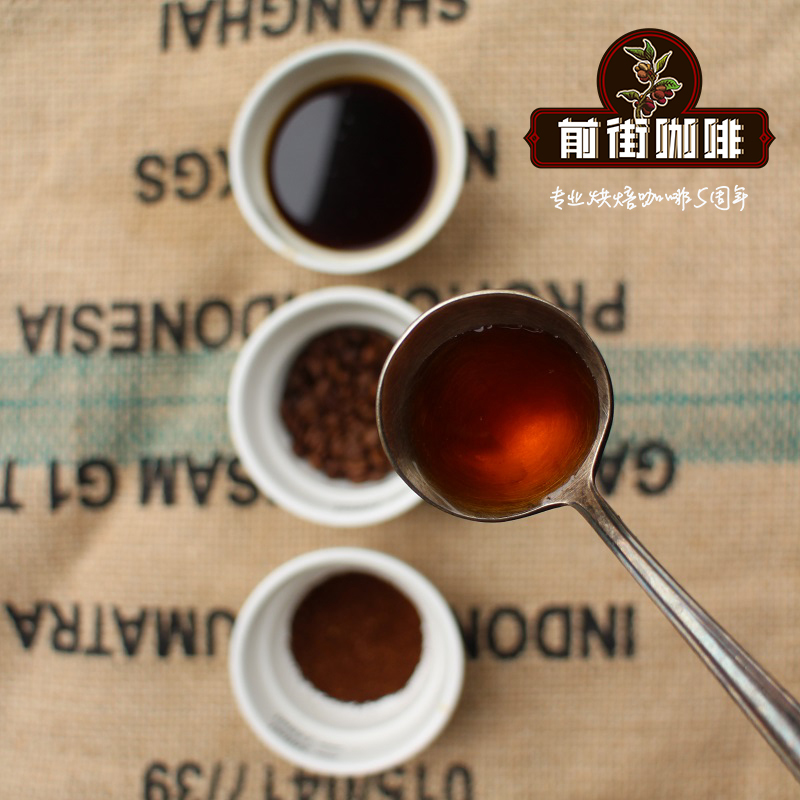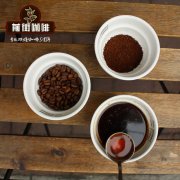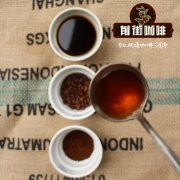Tanzania | Chagger chagga AAA- Rovuma Ruvuma coffee flavor?

Professional coffee knowledge exchange More coffee bean information Please pay attention to coffee workshop (Weixin Official Accounts cafe_style)
Tanzania| Chag chagga AAA-Ruvuma Coffee Flavor?
The main species of coffee in Tanzania is Arabica. Coffee beans are processed by natural washing method. Coffee classification is the same as Kenya. AAA grade is the best. Coffee sales adopt two channels: fine auction and direct sales. Coffee produced in Ruvuma production area will be introduced in the new season of 2010. Coffee beans are emerald green. Coffee particles are large and uniform in size. Compared with Kenya AA grade, it has better semicircular shape.
East Africa is home to many fine coffees, including Kenya, Ethiopia and Rwanda, and Tanzania is another East African country that produces good coffee. Tanzania's coffee exports occupy an important position in the entire national economy. Bean berry coffee is produced in large quantities and is said to be stronger than regular coffee. Generally speaking, Tanzanian coffee beans are of exceptional quality. For example, the finest Tanzanian Chagga AA coffee produced in the Moshi region near Kilimanjaro is known for its full-bodied, aromatic quality.
Political instability and pest infestation have disrupted Tanzania's coffee industry, leading to a decline in overall coffee levels and instability in quality, which in turn has led to lower prices, which usually lead to further declines in the coffee industry. More notably, it is estimated that more than 12 per cent of the Arabica coffee grown in northern Tanzania from 1969 to 1985 was smuggled into Kenya. However, the coffee industry has recently shown signs of improvement. Although the progress is slow, it is encouraging because Tanzania's coffee is of excellent quality.
In the past, Tanzania's coffee industry has been dominated by plantation cultivation, but now more than 85% is cultivated by smallholders. Many small farmers have formed cooperative organizations, the most important of which is the Kilimanjaro Cooperative Union (KNCU). Tanzanian coffee is sold at auction by the Tanzanian Coffee Marketing Board (TCMB) to private exporters. In the 1980s, most coffee sales in Tanzania shifted from auctions to direct sales to the Tanzanian Coffee Marketing Board. This has changed. The coffee industry is being reformed to allow individuals or groups to buy coffee in the future. Coffee will also be graded in different ways to attract buyers from Germany, Finland, Belgium and Japan.
Coffee is the largest crop in Tanzania. About 450,000 people are engaged in coffee-related agriculture. Due to its proximity to Kenya, Tanzania's coffee flavor tends to be similar to Kenya's coffee. However, due to inconvenient transportation and backward basic coffee equipment, coffee is often contaminated during transportation or damaged due to insufficient equipment in the processing process, causing people to have a bad impression of Tanzanian coffee. It is believed that the overall Tanzanian coffee acid is not fresh and not strong, but the Ruvuma producing area in the south has convenient transportation conditions near the Indian Ocean in the past two years. In addition, the contract with European and American green beans merchants to order coffee first ensures the quality of coffee.
Analysis: Three-stage brewing, clear coffee before, during and after the flavor. Because V60 has many ribs, the drainage speed is faster, and the extraction time can be prolonged when the water is cut off.
Light Roast End (City): After grinding beans, there is a clear aroma of lively peanuts and almonds. When brewing, there is apple and grape fruit aroma. Sweet taste is balanced and stable. The acidity of the plum is not stimulated. It is not strong. The sweetness is quickly produced between the cheeks. The lingering taste of the elegant tea is lasting and comfortable. This is very suitable for friends who have just come into contact with sour coffee. The style is not particularly sour. Sweet and sour is easy to attract people.
Full City: Strong cheesy bread aromas after grinding, dark chocolate caramel aromas after coffee brewing, malt toffee and milk sugar sweetness, mild and sweet round taste, lingering with a short fermentation of fruit tea aromas immediately converted to almond stone aromas.
Flavor: Tanzanian coffee gives people the feeling that it is sweet and sweet, and it is won by the chocolate sweetness that is not sour and mild, which often makes people think it is a cup of high-quality Colombia coffee.
Front Street Recommended Brewing:
Filter cup: Hario V60
Water temperature: 90 degrees
Abrasion: Small Fuji Abrasion 3.5
Cooking method: water-powder ratio 1:15, 15g powder, first injection of 25g water, stewing for 25s, second injection to 120g water, water cut off, wait for the powder bed water to drop to half, then inject water slowly until 225g water, extraction time about 2:00
Important Notice :
前街咖啡 FrontStreet Coffee has moved to new addredd:
FrontStreet Coffee Address: 315,Donghua East Road,GuangZhou
Tel:020 38364473
- Prev

Tanzania Kilimanjaro Clemangaro | the flavor of washed AA Arabica coffee beans?
Professional coffee knowledge exchange more coffee bean information please follow the coffee workshop (Wechat official account cafe_style) Tanzania Kilimanjaro Clemangaro | what is the flavor of washed AA Arabica coffee beans? The best performers in Tanzanian coffee mainly come from Mount Clemangaro (Mount Kilimanjaro) at an altitude of more than 1300 meters. Tansan in this area
- Next

Mexico | Oaxaca Oaxaca Sicco Cooperative | European rules wash Kaddura SHB flavor?
Professional coffee knowledge exchange more coffee bean information please follow the coffee workshop (Wechat official account cafe_style) Mexico | Oaxaca Oaxaca Sicco Cooperative | European rules wash Kaddura SHB flavor? Mexico is one of the largest producers of organic certified coffee, mostly sold to the United States because of geographical factors. The country's coffee industry began in the 19th century and was introduced through Jamaica
Related
- Detailed explanation of Jadeite planting Land in Panamanian Jadeite Manor introduction to the grading system of Jadeite competitive bidding, Red bid, Green bid and Rose Summer
- Story of Coffee planting in Brenka region of Costa Rica Stonehenge Manor anaerobic heavy honey treatment of flavor mouth
- What's on the barrel of Blue Mountain Coffee beans?
- Can American coffee also pull flowers? How to use hot American style to pull out a good-looking pattern?
- Can you make a cold extract with coffee beans? What is the right proportion for cold-extracted coffee formula?
- Indonesian PWN Gold Mandrine Coffee Origin Features Flavor How to Chong? Mandolin coffee is American.
- A brief introduction to the flavor characteristics of Brazilian yellow bourbon coffee beans
- What is the effect of different water quality on the flavor of cold-extracted coffee? What kind of water is best for brewing coffee?
- Why do you think of Rose Summer whenever you mention Panamanian coffee?
- Introduction to the characteristics of authentic blue mountain coffee bean producing areas? What is the CIB Coffee Authority in Jamaica?

